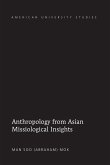Opera is able to offer enchanting performance sites, in which people create and experience glamorous or ecstatic imagined worlds, but behind this picture we find a real social organization embraced by reality, which makes opera's world and its history accessible for ethnographic enquiry, historical reflection and cultural analysis. This book therefore presents the author's original anthropological study, which shows complex historical, socio-cultural, political, economic, ideological, academic and ethnographic facets of opera culture in Slovenia, including the field sites of both Slovenian national opera houses, in Ljubljana and Maribor. The study explicates how social representations of opera are produced and enacted by different social agents involved within the Slovenian national operatic habitus, and how opera is used as an idealized vision of nationhood and national identity in a provincial society.
«'Opera and an anthropologist should no longer be an odd couple' Kotnik suggests, and how true that is. Opera and anthropology were made for one another, and in this book we see why. If opera is an extravagant art, then anthropologists are the connoisseurs of extravagance. Opera's preoccupations are the very stuff of anthropology: culture, taste, transgression, monsters and identities.» (Paul Atkinson, Distinguished Research Professor, School of Social Sciences, Cardiff University, UK)
«This captivating book reveals an intricate social organization behind the grandeur of opera performances in postsocialist Slovenia.» (Helena Wulff, Professor of Social Anthropology, Stockholm University, Sweden)
«This captivating book reveals an intricate social organization behind the grandeur of opera performances in postsocialist Slovenia.» (Helena Wulff, Professor of Social Anthropology, Stockholm University, Sweden)








